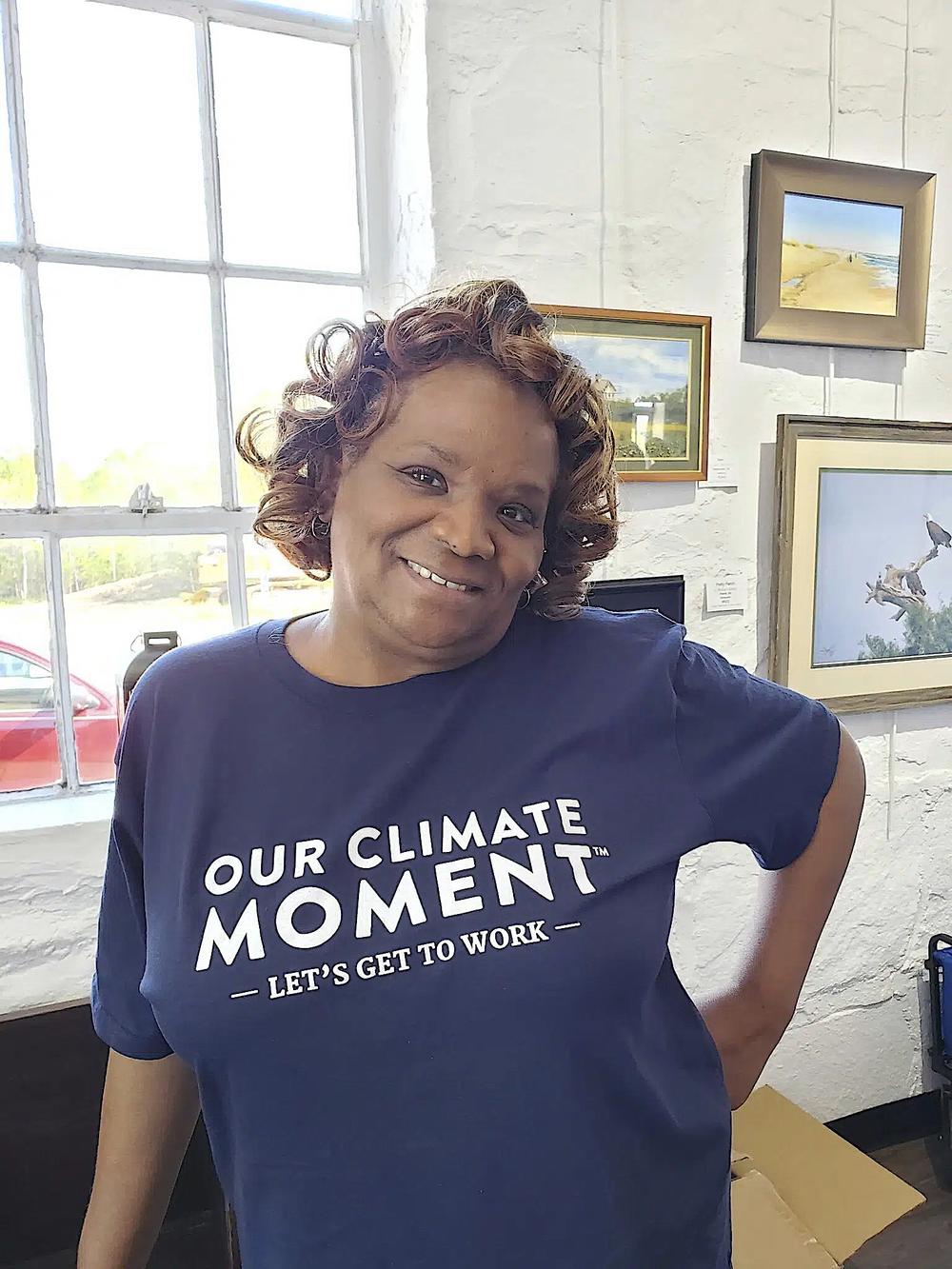
Section Branding
Header Content
Georgia Today: NAACP seeks WellStar investigation; Kemp wants more housing; Atlanta pro volleyball
Primary Content
LISTEN: On the Thursday, March 8 edition of Georgia Today: Georgia lawmakers and the NAACP are asking for a federal investigation into Wellstar Health System after the closing of two Atlanta-area hospitals; Gov. Brian Kemp is highlighting the need for more workforce housing across the state; and details on the professional volleyball team coming to Atlanta.

Peter Biello: Welcome to the Georgia Today podcast from GPB News. Today is Thursday, March 9. I'm Peter Biello. On today's episode: Georgia lawmakers and the NAACP are asking for a federal investigation into Wellstar Health System's decision to close to Atlanta area hospitals; Gov. Brian Kemp is highlighting the need for more workforce housing across the state; and professional volleyball is coming to Atlanta. We'll have the details. These stories and more coming up on this edition of Georgia Today.
Story 1:
Peter Biello: Georgia Democratic lawmakers, local officials and the NAACP are asking federal officials to investigate WellStar Health System over their decision to close two Atlanta area hospitals. State Sen. Nan Orrock said yesterday she and others have filed complaints with the Internal Revenue Service and with the U.S. Department of Health and Human Service's Office of Civil Rights. They claim Wellstar illegally discriminated against Black people and violated its tax-exempt status when it closed Atlanta Medical Center South in East Point and the Atlanta Medical Center, a health care provider for many low income residents, that was one of only two Level I trauma centers in the city. WellStar cited falling revenues and rising expenses when it closed the hospitals.

Story 2:
Peter Biello: Georgia Gov. Brian Kemp is highlighting the need for more workforce housing to accommodate demand from economic development projects across the state. GPB's Benjamin Payne reports.
Benjamin Payne: Speaking at the Georgia Logistics Summit in Savannah on Wednesday, Kemp said the majority of economic investment he's seen since taking office has been outside metro Atlanta. To that end, Kemp has proposed a rural workforce housing fund to help local governments boost their housing stock.
Brian Kemp: So we maintain our quality of life but also continue to have a better quality of life for those working Georgians that are literally helping make and develop the products that you all are shipping around the world.
Benjamin Payne: A study from the Georgia Department of Transportation projects the greater Savannah area will grow 34% by 2045. And an economics professor from Georgia Southern University who spoke at the summit called Savannah, quote, "the hottest market in the logistics industry right now." For GPB News, I'm Benjamin Payne in Savannah.
Story 3:
Peter Biello: The three white men serving life prison sentences for killing Black jogger Ahmaud Arbery are appealing their federal hate crimes convictions. Attorneys for Gregory and Travis McMichael and William Bryan cite legal arguments made in their original federal trial. They argue that race did not factor into their clients' motives to hunt down and kill Arbery.

Story 4:
Peter Biello: Tish Naghise, a first term member of the Georgia House, has died at the age of 59. Naghise died yesterday after being hospitalized for several days. No cause of death was given. Naghise said on her website she got involved in Democratic politics when Barack Obama ran for president in 2008. She previously worked for the Democratic Party of Georgia and was a delegate at the Democratic National Convention in 2020. The Fayetteville resident represented a district that includes Atlanta suburbs in southern Fulton and northern Fayette counties.
.
Story 5:
Peter Biello: A growing number of people are caring for an aging loved one at home. But many of those caregivers can miss the signs when a loved one gets sick. GPB's Ellen Eldridge has more.
Ellen Eldridge: That's especially difficult when a family member begins to decline physically or mentally. When that happens, caregivers need more support. Mary Caldwell is a gerontologist with Town Square Sandy Springs, an adult day care center. She says something as common as an untreated infection can turn to sepsis and kill an elderly person.
Mary Caldwell: If there's dehydration going on, if there could be a UTI. UTIs specifically do raise the uric acid levels and will affect behavior.
Ellen Eldridge: UTIs are the most common type of bacterial infection in adults over age 65. For GPB News, I'm Ellen Eldridge.

Story 6:
Peter Biello: Twenty years ago this month, U.S. forces invaded Iraq. The U.S. government's stated goal at the time was to destroy Iraqi weapons of mass destruction and end the rule of Saddam Hussein. While the U.S. did accomplish the latter, it turned out our information on those WMD's has turned out to be less than reliable. What followed was years of military effort to stabilize the country at a cost of thousands of lives. This week, a symposium presented jointly by Columbia State University and the National Infantry Museum, looks back at the war and the lessons learned. It begins tomorrow. Joining me now to discuss it is Dr. David Kieran. He's associate professor and Col. Richard R. Halleck Distinguished Chair in Military History at Columbus State.
Dr. Kieran, thank you very much for speaking with me. The start of this conflict was, for me a moment kind of like 9/11. I remember where I was when then President George W. Bush made the announcement that this war was going to start. I was in college at the time. Where were you?
David Kieran: I was teaching high school in Connecticut. I graduated from college in 2000, and so the fall of my second year teaching was Sept. 11. And then a year and a half later was the beginning of the Iraq war. And so I remember vividly being with high school students in a town that had a lot of military personnel living in it, thinking about what this war would mean for the nation.
Peter Biello: What was the dialogue like among those you were teaching in and in your community? Because in mine it was very anti-conflict.
David Kieran: It was a mixed — mixed feelings, really. There was a number of people who were very skeptical of the war and very concerned that it was a departure from the fight against al-Qaida, that it was a war of choice rather than a war of necessity, that it would lead the United States to get bogged down in the Middle East. And then there were also many people who saw it as a necessary fight and were reluctant — and many others who were reluctant to speak out against the war and who saw the need to to really rally behind the troops as they went off to war.
Peter Biello: I remember at the time, in 2003, hearing a lot of comparisons to Vietnam, that once we were in we're going to be stuck in something like a quagmire. It seems to some extent that that turned out to be true. We were there, we caused some instability, and we tried to take on the responsibility of fixing things. But you're the historian, so you tell me. How do things look from your perspective? Does it compare to Vietnam?
David Kieran: Americans have been comparing conflicts to Vietnam almost since the moment the Vietnam War ended. But there was a lot of discussion of the idea that this was a war that the United States had entered, not of necessity, but of — of choice, and that it would lead them to become bogged down for years. And certainly that happened. The United States did end up having to make a much larger commitment with uncertain, for a long time, uncertain results in terms of the success of rebuilding Iraq and creating a stable state.
Peter Biello: How successful were American forces in stabilizing the country?
David Kieran: How successful the United States was in stabilizing Iraq is a question that historians and policymakers continue to debate. Certainly, the U.S. had worked very hard to quell sectarian violence and build a semblance of stable governance in Iraq. But there are still a lot of open questions. You know, we're still seeing what the effects of the U.S. war are on the Iraqi people and their well-being.
Peter Biello: What about mental health? You've written about the impact on mental health among those who've served in the military. What about those who have served in the Iraq war? Where was our mental health care system when those men and women were coming home from this conflict?
David Kieran: It's really important to understand that the United States did not enter Iraq thinking it would be a prolonged conflict of the sort it turned out to be. It was the first war of any length that the United States had fought with an all-volunteer military and was the first war that required multiple deployments of troops. And so there really wasn't a mental health infrastructure in the United States military that was up to the challenge that this war posed. And so that meant that military mental health providers, people in the VA, military leaders had to work in real time to figure out how to understand the mental health consequences of these wars and how best to treat soldiers and their families as they were returning. And as one person said to me, "We were trying to change the wheels on the bus, while the bus was going 60 miles an hour down the highway." And the military worked extremely hard to develop better protocols for understanding what the stressors soldiers faced. And so they made a lot of progress. But at the same time, there are still real needs that have been and continue to exist in terms of identifying service members who need care, encouraging them to seek help.
Peter Biello: We talked a moment ago about questions that are still up for debate with respect to this war among historians, academics. This one is probably another one of those kinds of questions. But with the hindsight that we have, to what extent was this war worth the cost? The cost of lives, the cost of treasure, the cost of the reputation to our country?
David Kieran: That remains the most significant question that Americans have to debate. And the 20th anniversary of the war's beginning is really a great moment to do that. Certainly, we have — now know that Saddam Hussein's program of weapons of mass destruction was not robust and was not in — as much of a danger as the Bush administration had argued that it was. We know that some of the intelligence going into the war was not as reliable as — as we might have hoped it would be. And so that does open up the question of — we need to continue to ask: under what circumstances should the United States go to war, and in particular, whether this war was a necessary war. And I think that we're going to see continued debate — and hopefully in a renewed look at that — as we as we hit the 20th anniversary.
Peter Biello: Dr. David Kieran is associate professor of military history at Columbus State University and he's taking part in The Iraq War: A 20 Year Retrospective Symposium which begins tomorrow in Columbus and is free and open to the public.
Story 7:
Peter Biello: FBI agents have returned to the Iraqi government an artifact stolen from the Iraqi museum in Baghdad in 2003. The ivory object, a furniture fixing depicting a sphinx, has been on display at Emory University's Michael C. Carlos Museum in Atlanta. An FBI statement says the museum bought the artifact from a third party after administrators were shown a fake provenance. The museum gave the object to FBI agents in December. The work of art was dated to the Iron Age and the seventh century BCE.
Story 8:
Peter Biello: This year marks three decades of inclusive theater by actors with disabilities at Jerry's Habima Theatre in Atlanta. The program of the Marcus Jewish Community Center is marking the big anniversary with the production of Rodgers and Hammerstein's Cinderella. GPB's Amanda Andrews brings us this audio postcard.
Jesse Durden: When I was a kid, I wanted to be a cartoon character really, really badly. And theaters, including musical theater, gave me that chance to become whatever cartoon character I wanted to be.
Actor 1: Oh, you look so beautiful!
Actor 2: Oh, yes, we do.
Jesse Durden: My name is Jesse Thomas Durden, and I play the stepmother in the show.
Actor 1: Come along, girls. Girls!
Patrick Robinson: I won't lie. When I first heard I was — got the King, I got a little nervous because King is a very different role for me. I'm Patrick Robinson. I play the king.
Actor 1: Don't have any king crab.
Actor 2: Very well, your majesty.
Actor 1: I'd hate to see that written on a menu. King crab! Sounds like a comment on my disposition.
Patrick Robinson: I've always played more of a comedic kind of role, but I think it's cool because it shows that, I mean, the directors trusted me.
Music: Your majesty! Your majesty!
Matt McCubbin: My name is Matt McCubbin and I'm the director of Cinderella.
Ambience: Hands over your head and out.
Matt McCubbin: Having to teach choreography to this population is really fun.
Ambience: And you're on a roller-coaster, whoa! Stretch it this way. Wiggle your fingers.
Matt McCubbin: In a lot of ways, it probably would sound like occupational therapy maybe to — or physical therapy for other people. I think it's always about finding creative ways for them to use bodies and be comfortable doing it as well.
Ambience: And try to do some jazz hands! Shake out your wrists!
Kim Goodfriend: This really isn't that special. I am Kim Goodfriend, and I work in the theater department. Everyone does something very well and everyone — some people struggle to read and so we teach by rote. Club feet? Okay, We're going to figure out a way to help you move so that you will look and feel beautiful on stage. That's a human thing. That's not a disabilities thing.
Music: The prince!
Katie Rolle: I also do acting like in other theaters as well as with other people to get them, to encourage them to, you know, come out and for them to, you know, go for it as well. My name is Katie Rolle, and I play Portia in the show.
Actor 2: Every girl in the kingdom wants to marry the prince, including you, Portia, and you, Joy.
Katie Rolle: So I always thought being an actor just brightens your horizons.
Amy Schwartz: I'm a stage manager for Habima Theater: Amy Schwartz. What I think is special about Cinderella particularly, is that we are going to pull more children in as audience members. And in Cinderella, there's a whole song about "It's possible."
Music: It's possible!
Amy Schwartz: And that, there's something about that where you have a lot of children in the audience, where families can then have their minds changed of what is the possibilities of people with special needs.
Music: It's possible! It's possible!
Peter Biello: That was the cast and crew at Jerry's Habima Theatre in Atlanta. Their production of Rodgers and Hammerstein's Cinderella opens tonight.

Story 9:
Peter Biello: And League One Volleyball announced today, Atlanta and Houston are locations for its first pro team markets. The league's inaugural season begins January 2025 and will feature six teams in six cities across the country. In choosing locations for its first pro team markets, the league considers factors including women's volleyball fandom, volleyball spectatorship and arena availability. The league also announced today the addition of Hayley Washington to its pro roster, which already includes Olympic gold medalists Kelsey Robinson and Justine Wong Arantes.
Peter Biello: All right. We're done with this edition of Georgia Today. Thank you so much for tuning in. Got a lot more news coming out of this newsroom. To stay on top of it all, the best thing to do, of course, is to subscribe to Georgia Today. So take a moment, do that now. We'll be back with you and your feed tomorrow afternoon. If you've got feedback, we'd love to hear it. Send us an email. The address is GeorgiaToday@GPB.org. We really do read those emails, by the way, so send them along: Georgia Today@GPB.org. And if you love this podcast, make sure to leave a review; that helps other folks find it. I'm Peter Biello. Thank you again for listening. We'll see you tomorrow.
——
GPB's Georgia Today newsletter hits your inbox on Tuesdays, Wednesdays and Thursdays with top stories from around the state featuring news, politics and more. Subscribe here.


